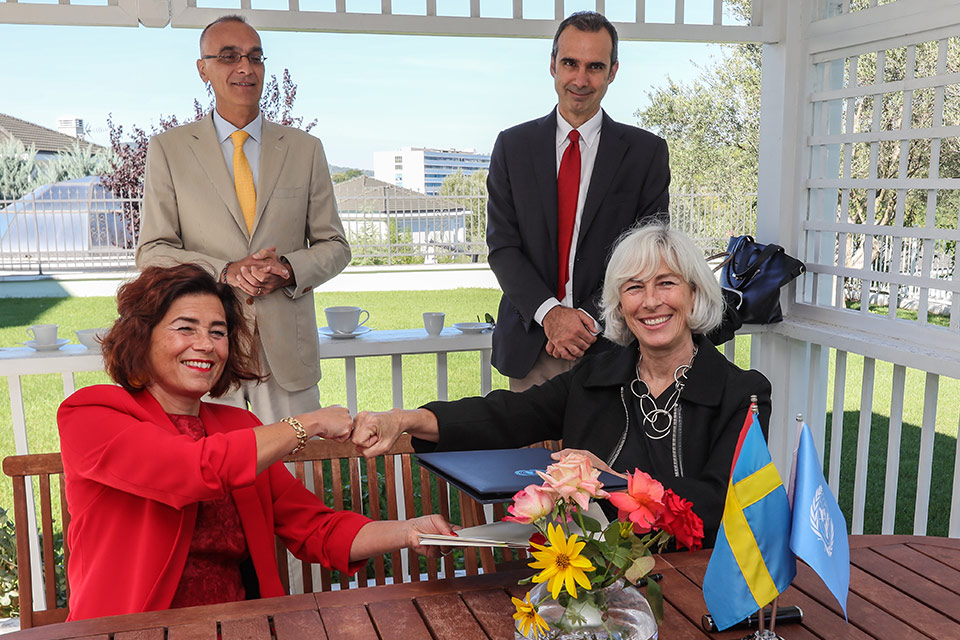Increasing women resilience in post-earthquake and pandemic recovery in Albania
Date:

9 October 2020 - The United Nations in Albania and the Swedish Embassy signed today a two million-euro programme that will support the protection and recovery of children, women and girls affected by November 2019 earthquake.
UN Women will focus on reducing gender inequalities and the vulnerability of women in the communities hit by the deadly earthquake of November 2019.
“UN Women will be working on women resilience, supporting women participation in recovery processes while UNICEF will be working on child protection. It is an agreement that contributes to post-earthquake recovery as part of the SDG Acceleration Fund,” said UN Resident Coordinator in Albania, Fiona McCluney.
Sweden is one of the contributors of the UN programmes that are supporting the Albanian Government post-earthquake recovery efforts together with Denmark, Finland, Netherlands, Norway, Poland, Sweden, and United Kingdom.
“We are happy to contribute and be a partner with UN in Albania”, said Swedish Ambassador in Albania, Elsa Hastad.
“We look forward to working with communities and institutions to put women at the center of disaster risk reduction efforts”, noted Michele Ribotta, UN Women Country Representative.
According to the Post Disaster Needs Assessment (PDNA) conducted in Albania following the November 2019 earthquake, women and girls are disproportionately impacted by the earthquake as they are pushed further towards traditional roles and activities, including caretaking for children and elderly, family members with disabilities and engaging in agriculture to support their household. Women and girls in these communities are now faced also with the impact of COVID 19 pandemic, which is expected to further widen gender inequalities and exacerbate their socio-economic situation.
One of the greatest threats to women affected by the earthquake remains gender-based violence, now increased by the impact of COVID-19. The intervention will provide support services such as counselling and legal aid to women and girls in these communities and raise their awareness and understanding on gender-based violence. UN Women will work with local actors and service providers such as police, health and judicial sector to increase their capacities in responding to survivors of violence in crisis situations.
Funds contributed by SIDA will help reduce gender inequalities in the post-earthquake and COVID-19 recovery process, ensuring equal distribution of resources and benefits. They will also promote the integration of a gender perspective in emergency response to better respond to women and girls needs.
The intervention will focus on some of the most affected communities such as Shijak, Durres, Kruja, Tirana, Kamza, Vora, Kavaja, Rrogozhina, Kurbin, and Mirdita.